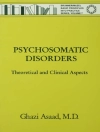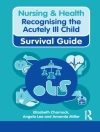This volume of the Keio University International Symposia for Life Sciences and Medicine contains the proceedings of the 13th symposium held under the sponsorship of the Keio University Medical Science Fund. The fund was est- lished by the generous donation of the late Dr. Mitsunada Sakaguchi. The Keio University International Symposia for Life Sciences and Medicine constitute one of the core activities sponsored by the fund, of which the objective is to contribute to the international community by developing human resources, promoting scienti?c knowledge, and encouraging mutual exchange. Each year, the Committee of the International Symposia for Life Sciences and Medicine selects the most signi?cant symposium topics from applications received from the Keio medical community. The publication of the proce- ings is intended to publicize and distribute the information arising from the lively discussions of the most exciting and current issues presented during the symposium. On behalf of the Committee, I am most grateful to the late Dr. Sakaguchi, who made the series of symposia possible. We are also grateful to the prominent speakers for their contribution to this volume. In addition, we would like to acknowledge the ef?cient organizational work performed by the members of the program committee and the staff of the fund. Naoki Aikawa, M. D. , D. M. Sc. , F. A. C. S.
İçerik tablosu
Safety and Efficacy of Hemoglobin-Vesicles and Albumin-Hemes.- Red Blood Cell Substitutes: Past, Present, and Future.- Inhaled Nitric Oxide: Update 2003.- The Role of p50 in Tissue Oxygen Delivery by Cell-Free Oxygen Carriers.- Repetitive Administration of Hemoglobin Raffimer in Experimental Models and Clinical Applications.- Oxygen Gradients In Vivo Seen by a High Oxygen Affinity HB Polymer.- Oxygen Partition Between Microvessels and Tissue: Significance for the Design of Blood Substitutes.- Endothelial Cell Response to Hemoglobin Based Oxygen Carriers. Is the Attenuation of Pathological Reactions Possible?.- The Development of a Second-Generation, Designer, Recombinant Hemoglobin.- Hemoglobin-Vesicles (Hb V) as Artificial Oxygen Carriers.- Successful Ex Vivo Normothermic Liver Perfusion with Purely Artificial Products Using Artificial Blood.- Effect of Hemoglobin-Based Blood Substitutes on Nitric Oxide Transport: Mathematical Models.- New Strategy for the Preparation of NO-Treated Red Blood Cells as a Blood Substitute.- Oxygen-Carrying Plasma Hemoprotein Including Synthetic Heme.- Micromechanical Properties of Newly Developed Polyelectrolyte Microcapsules (PEMC).- Intravascular Microbubbles: An Ultra-Effective Means of Transporting Oxygen.- Oxygen-Dependent and Oxygen-Independent Effects of Perftoran.- State of the Art and Challenges in Blood Substitutes Research: A Case Study on Perfluorocarbon-Based Oxygen Carriers.- Semifluorinated Alkanes as Stabilizing Agents of Fluorocarbon Emulsions.- Possible Role of Artificial Oxygen Carriers in Shock and Trauma.- Clinical Needs for Artificial Oxygen Carriers in Anaesthesia.- Studies on Red Cell Substitutes in Japan and Future Perspectives.












